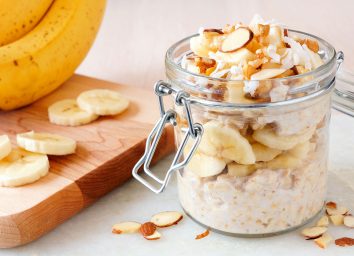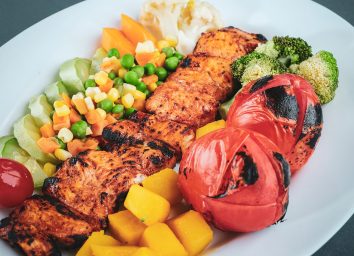Best Supplements for High Cholesterol, According to Nutritionists
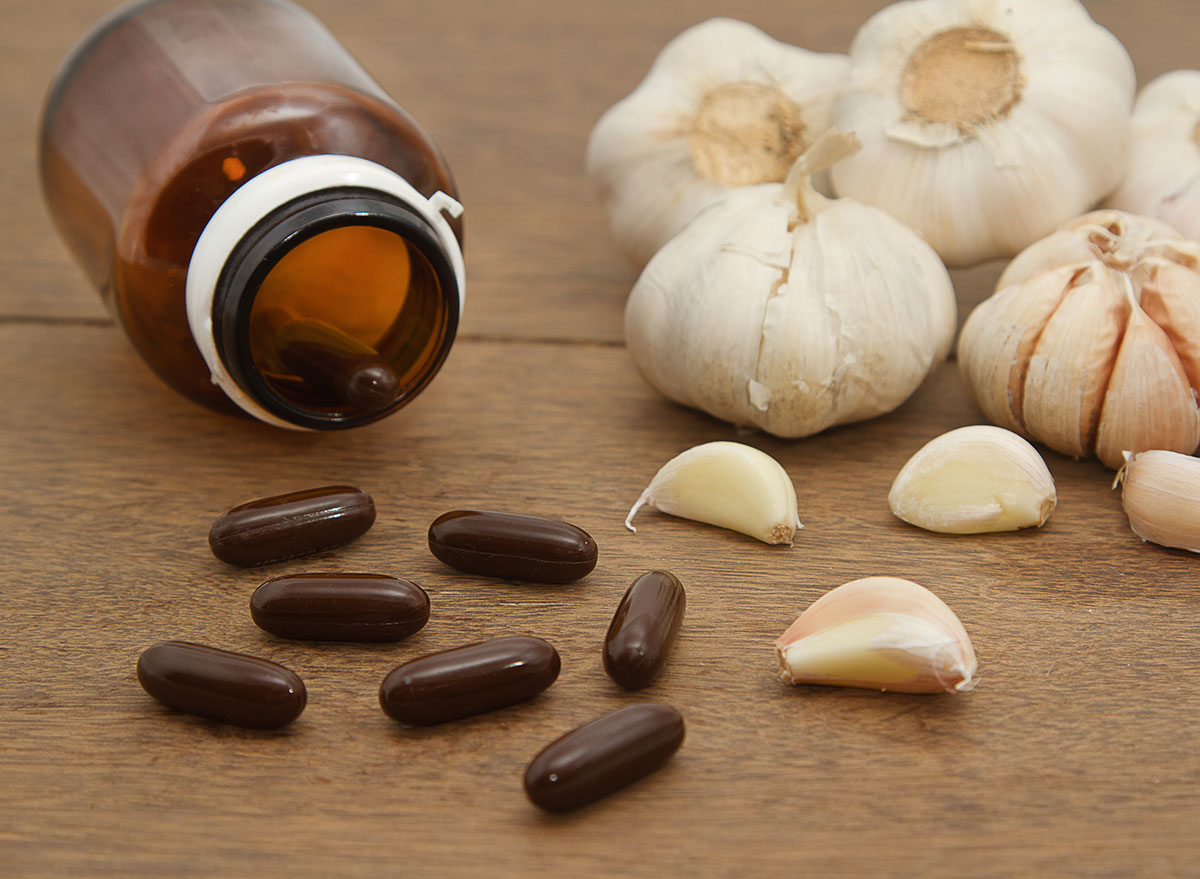
Your diet impacts your cholesterol levels in a big way.
"The research is rock solid," says Mark Drucker, MD, medical director of the Center for Advanced Medicine. "Eating too many calories and too much unhealthy saturated fats along with too much sugar and starch will cause elevated unbalanced cholesterol levels in most people." (Read more: Popular Foods Proven to Cause High Cholesterol, According to Science.)
Let's say, however, that you've already tried eating oatmeal and other high-fiber foods, plus fish and flaxseeds for their beneficial omega-3s, you've limited saturated fats and cut out trans fats, and (you say, at least) that you exercise daily. Maybe you've even lost weight, which can improve your lipids, the technical term for cholesterol or blood fats. And now your doctor recommends a statin drug to lower your cholesterol. But you don't want to take another prescription medicine.
What next to try before signing up for statins? An over-the-counter dietary supplement.
We asked registered dietitians and other nutritionists for supplements that they recommend to their clients for high cholesterol and found a variety available at your supermarket or pharmacy that you can try. And for more on over-the-counter nutritional pills, check out The Best Supplements for People Over 50.
Vitamin and Phytonutrient Supplements
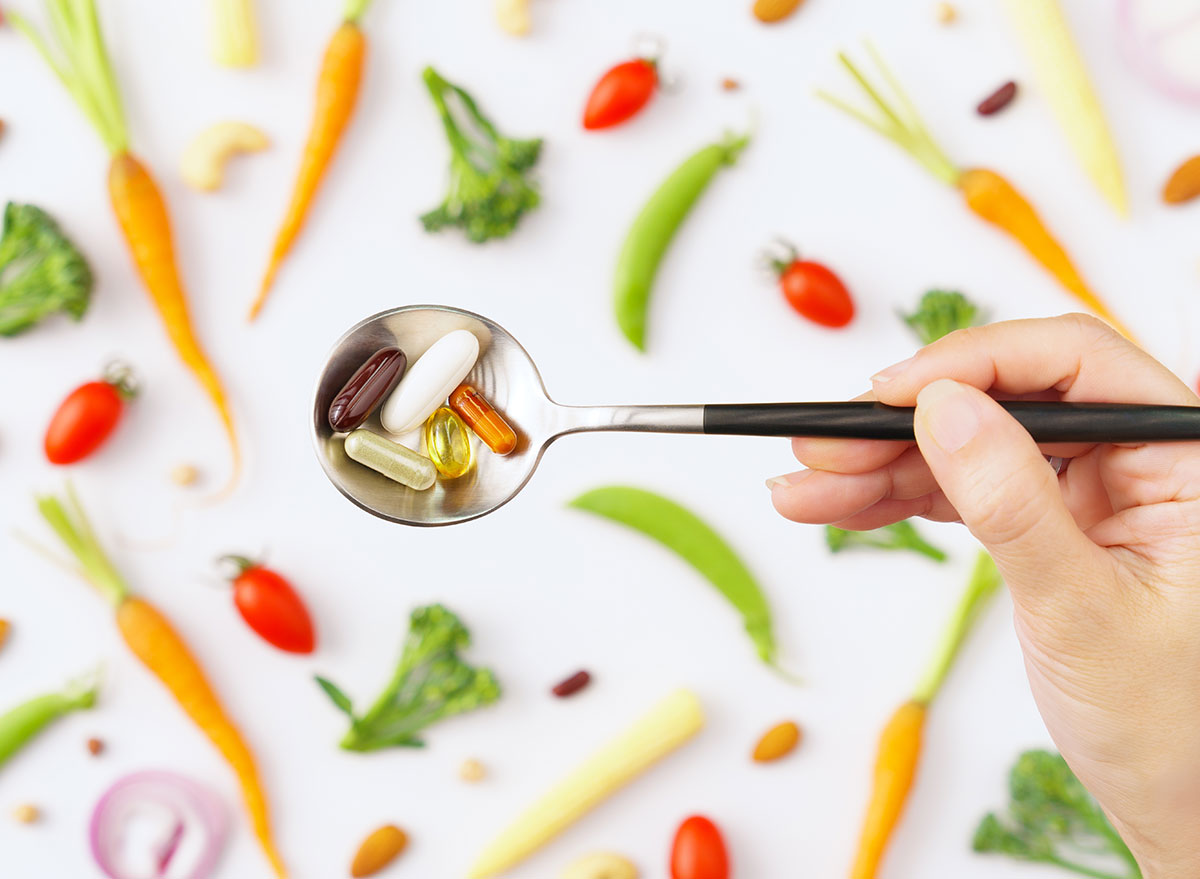
You may have heard that antioxidant vitamins counteract the oxidative damage to cells caused by oxygen-containing free-radical molecules that increase your risk for a host of chronic illnesses, from obesity to cardiovascular disease. Part of how they work against heart disease is by helping to lower cholesterol, says Trista Best, MS, RD, a registered dietitian at Balance One Supplements. "Antioxidants are plant compounds that stimulate the immune system and are also responsible for reducing inflammation by preventing clumping of blood platelets," says Best. "If this damage persists, cholesterol rises, and the sticky substance can adhere to the walls of the arteries." Best recommends people with high cholesterol try supplementing with antioxidant-specific supplements, such as NOW's Super Antioxidants.
Plant Sterols
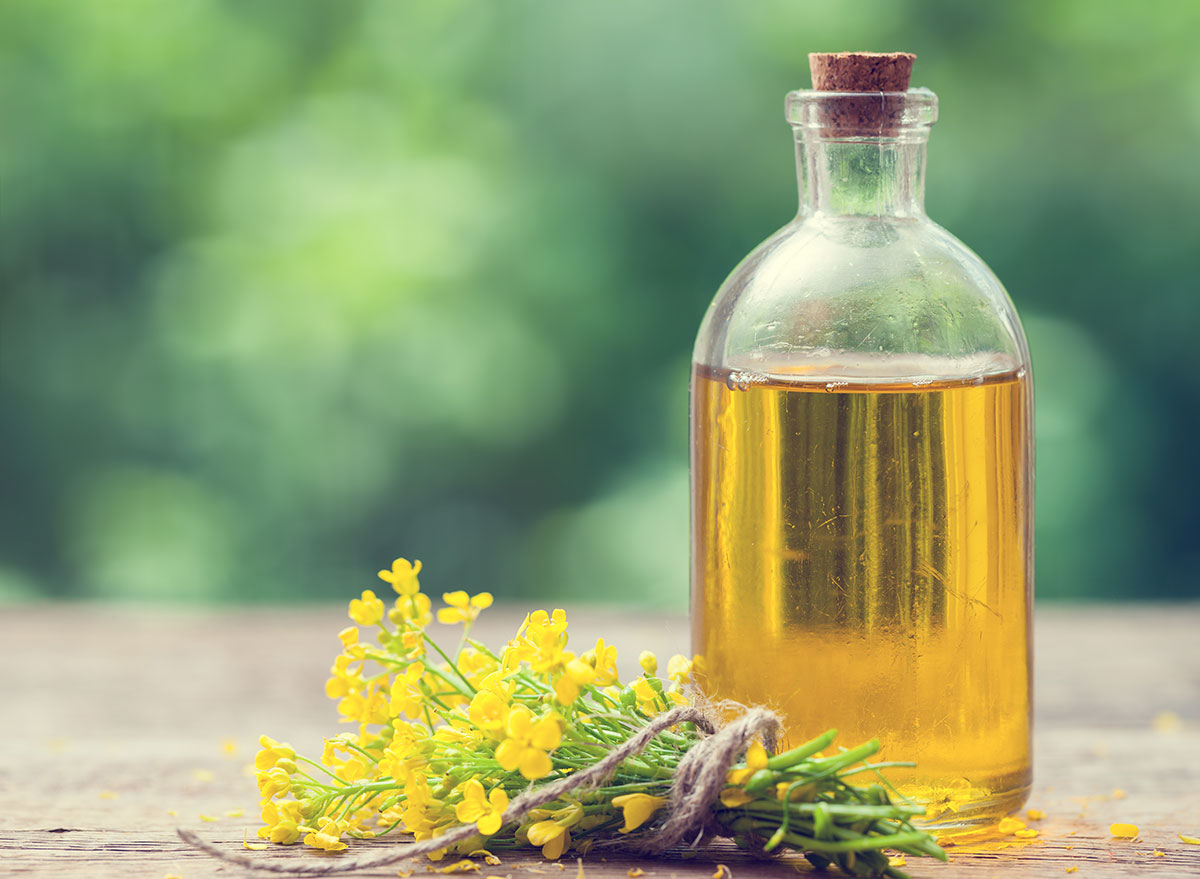
Phytosterols (plant sterol and santol esters), found in many vegetables, fruits, whole grains, beans, and seeds, are plant compounds that when eaten partially block absorption of cholesterol in the digestive tract so less gets into the bloodstream. The amount you get from foods is relatively small, but supplements can increase intake into the effective range, which is associated with a 10% reduction in total cholesterol and LDL cholesterol, says registered dietitian Susan Bowerman, MS, RD, the senior director of World Wide Nutrition Education and Training for Herbalife Nutrition. Phytosterol supplements should be taken just before or with meals and snacks, two to three times a day, she says.
Soluble Fiber
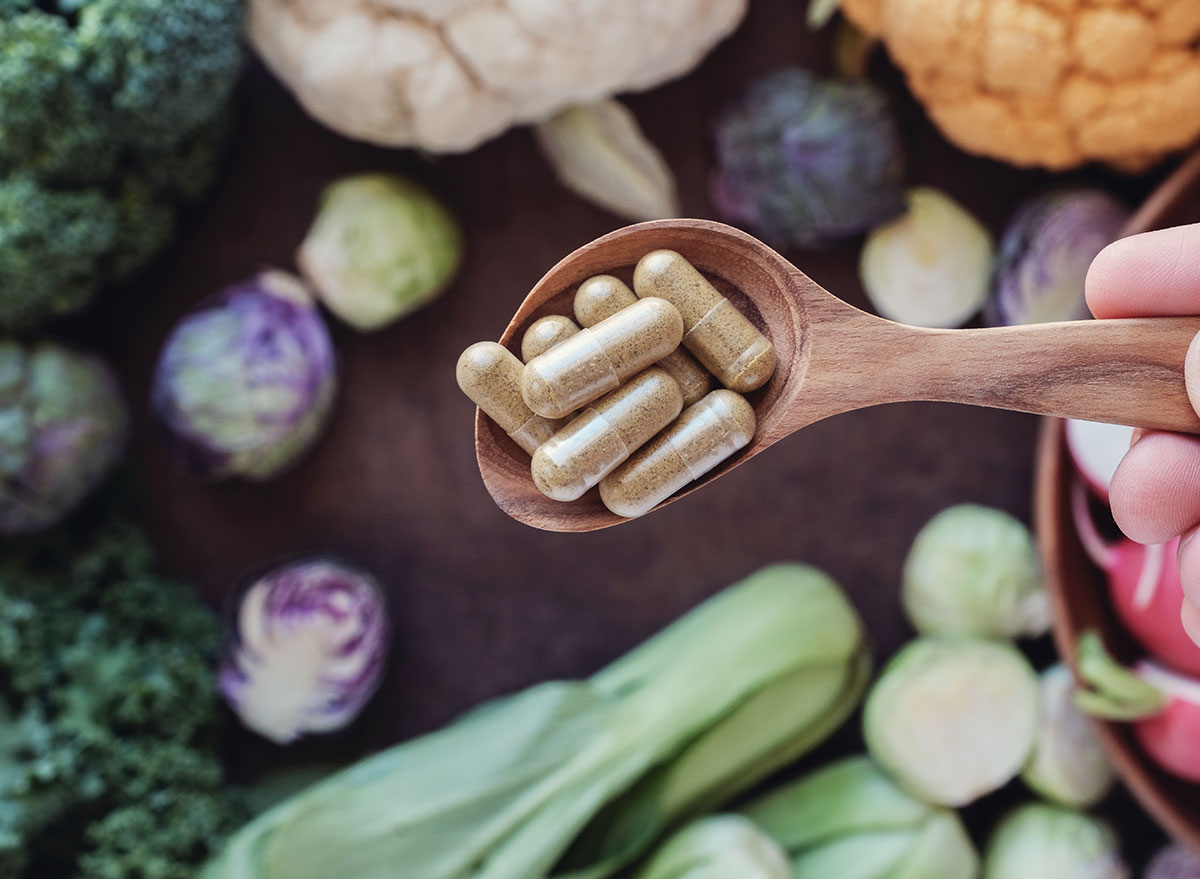
You're aware that oats, beans, and barley are good sources of cholesterol-lowering fiber, especially the soluble kind that binds with cholesterol in the digestive tract and reduces the amount absorbed into the bloodstream. But what if you can't stomach oatmeal and beans every day? Take a soluble fiber supplement. You don't even have to take them in capsule form. "They are easy to incorporate into the diet by stirring (the powdered supplement) into juices, yogurt, and other foods," says Bowerman, a former assistant director of the UCLA Center for Human Nutrition. Also, consider another type of soluble fiber called beta-glucans, she says. Found in oats, yeast, and mushrooms, they can also be taken in supplement form. A meta-analysis of controlled trials using oat beta-glucan supplements found that a dose of 3.5 grams daily significantly lowered LDL cholesterol as well as apoB (apolipoprotein B), the part of cholesterol that's most artery-clogging.
Another specific type of soluble fiber supplement is psyllium husk, which is the outer layer of the seeds from the psyllium plant. "Psyllium supplements have been shown to help lower total and LDL cholesterol levels in people who have mild to moderately elevated blood cholesterol levels, says nutritionist Marisa Moore, RDN, a partner with Nurish by Nature Made. "And it comes with a bonus; it's effective to remedying constipation." Psyllium contains about 70% soluble fiber, which increases feelings of fullness and slows digestion, and 30% insoluble fiber, the kind that adds bulk to the stool and help regulate bowel movements. Psyllium is available in capsule, tablet, and mixable powder forms.
Niacin
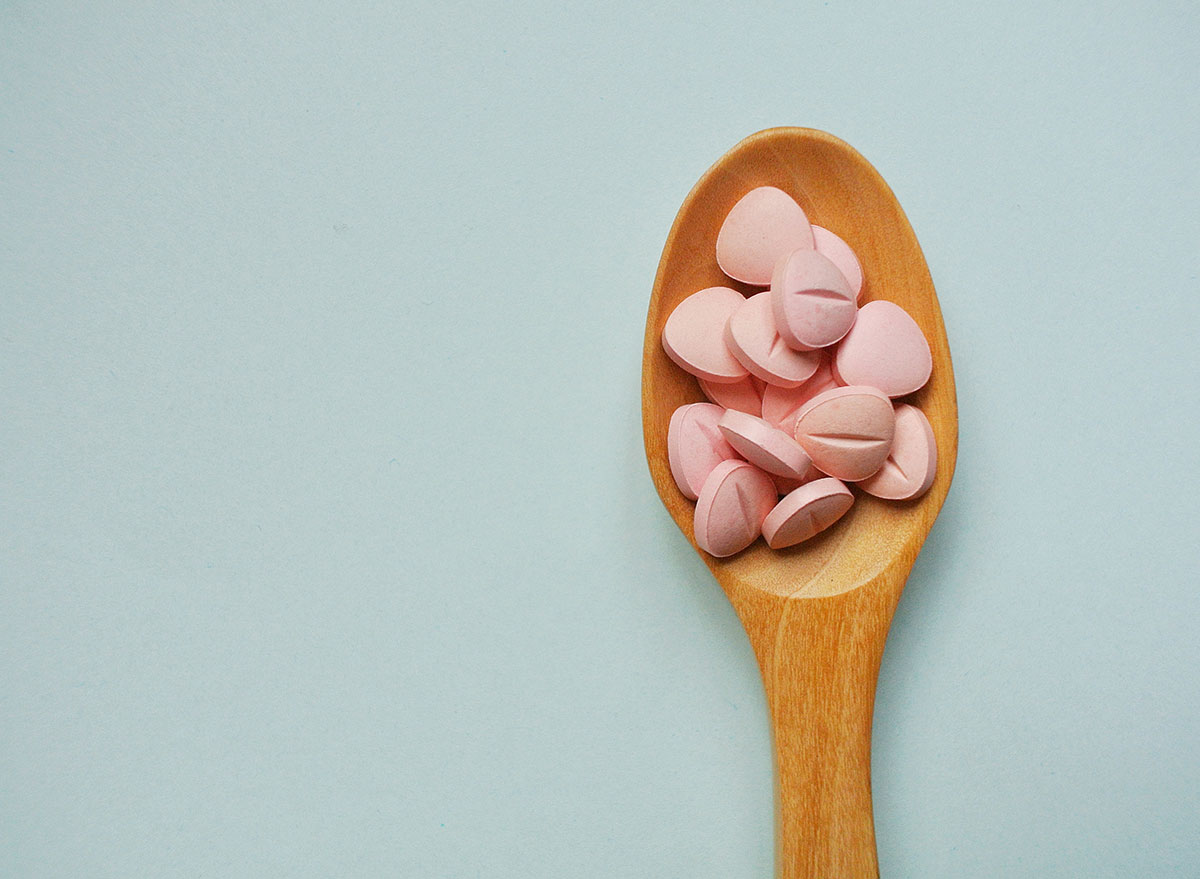
"One of the top supplements is niacin, which is a B vitamin, shown to lower bad cholesterol and improve the good HDL," says Morgyn Clair, MS, RD, a nutritionist with Sprint Kitchen. You can get it from your doctor or it's easy to get over the counter, she says. Niacin also reduces triglycerides, another blood fat associated with heart disease. The vitamin works by containing lipoproteins that are released from triglycerides in fat tissue. One side effect to note: niacin in certain doses can cause flushing and itching of the skin, which is uncomfortable but harmless.
Omega-3 Supplements
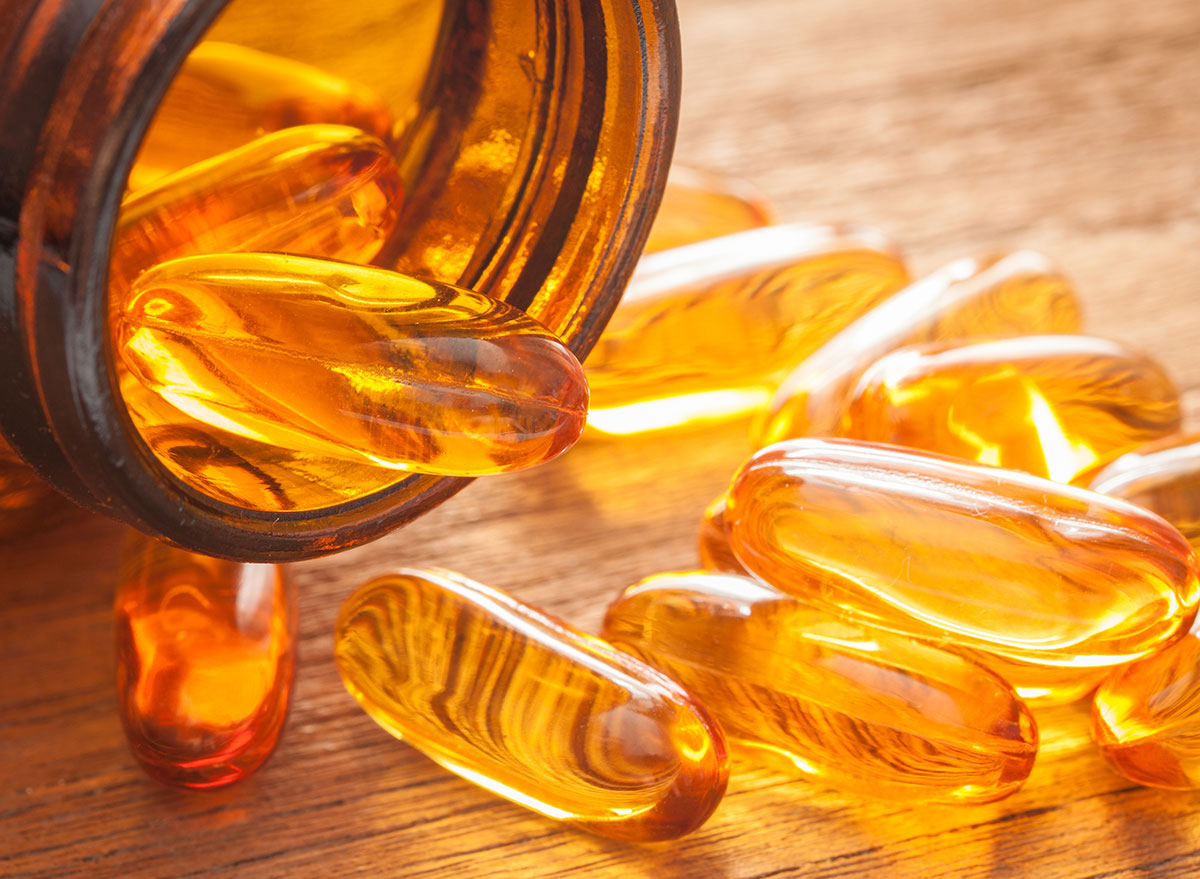
"The first [supplement for high cholesterol] many people think of is fish oil (omega-3 fatty acids)," says Dr. Drucker. He notes, however, that while there are heart-health benefits from taking this supplement, there isn't necessarily enough evidence to support that it is directly linked to lowering cholesterol. "Studies on fish oil supplements aren't conclusive of its benefits largely because the studies do not account for the persons' overall nutrition and lifestyle choices, but fish oil is without question, heart-healthy."
Drucker also recommends chlorella, a freshwater algae that contains omega-3s, that's available in supplements like Sun Chlorella, which also contains antioxidants and dietary fiber.
Garlic Supplements
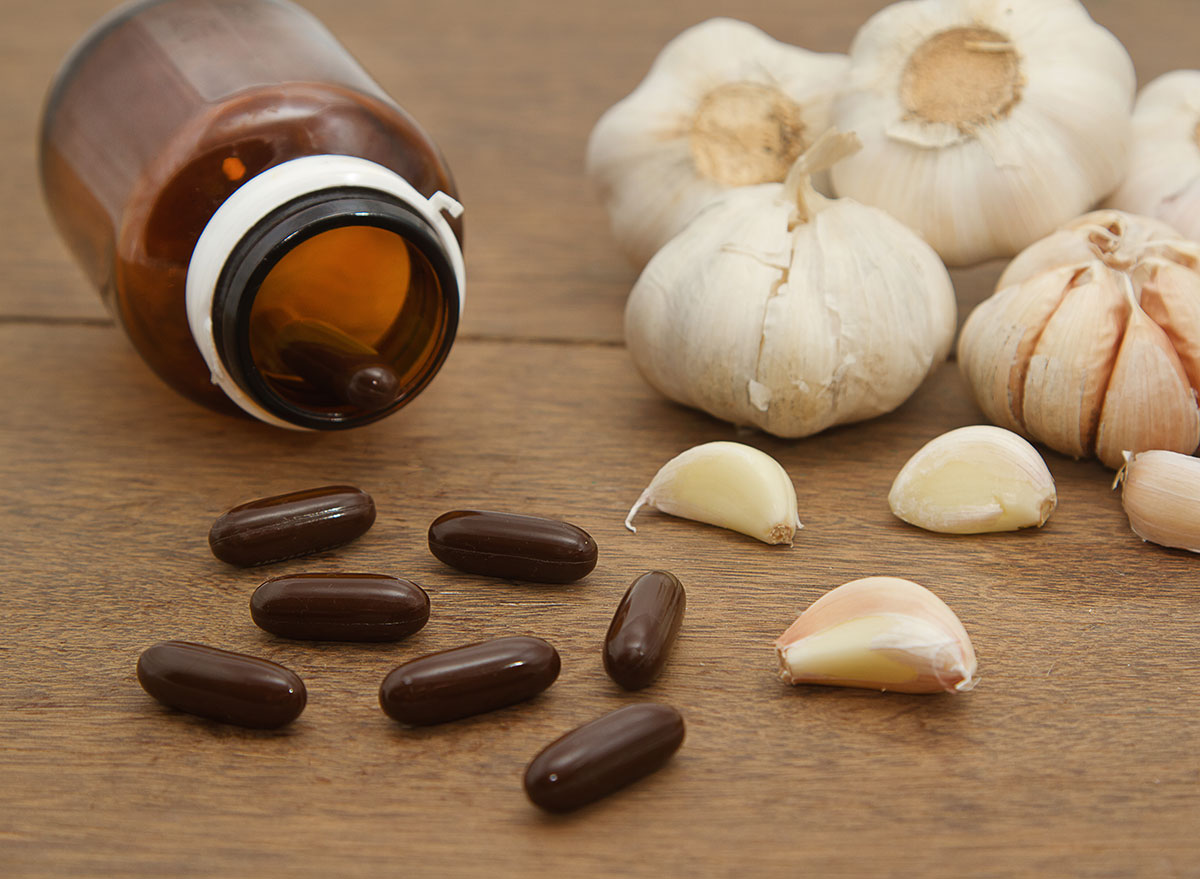
Fresh garlic has long been shown in research to help reduce total cholesterol, LDL and triglycerides, but "you can also take a therapeutic dose of garlic in supplement form," says Carrie Lam, MD, a physician board certified in anti-aging and regenerative medicine with Dr. Lam Coaching. "Aim for at least 6,000 mcg of allicin (the amino acid in garlic) per day, which is equivalent to about 4 cloves." Be aware that garlic has a blood-thinning effect, and should not be taken in large amounts if you are on blood thinners, warns Dr. Lam. By the way, it's a good idea to check with your family doctor before taking any new supplement.
Green Tea Extract
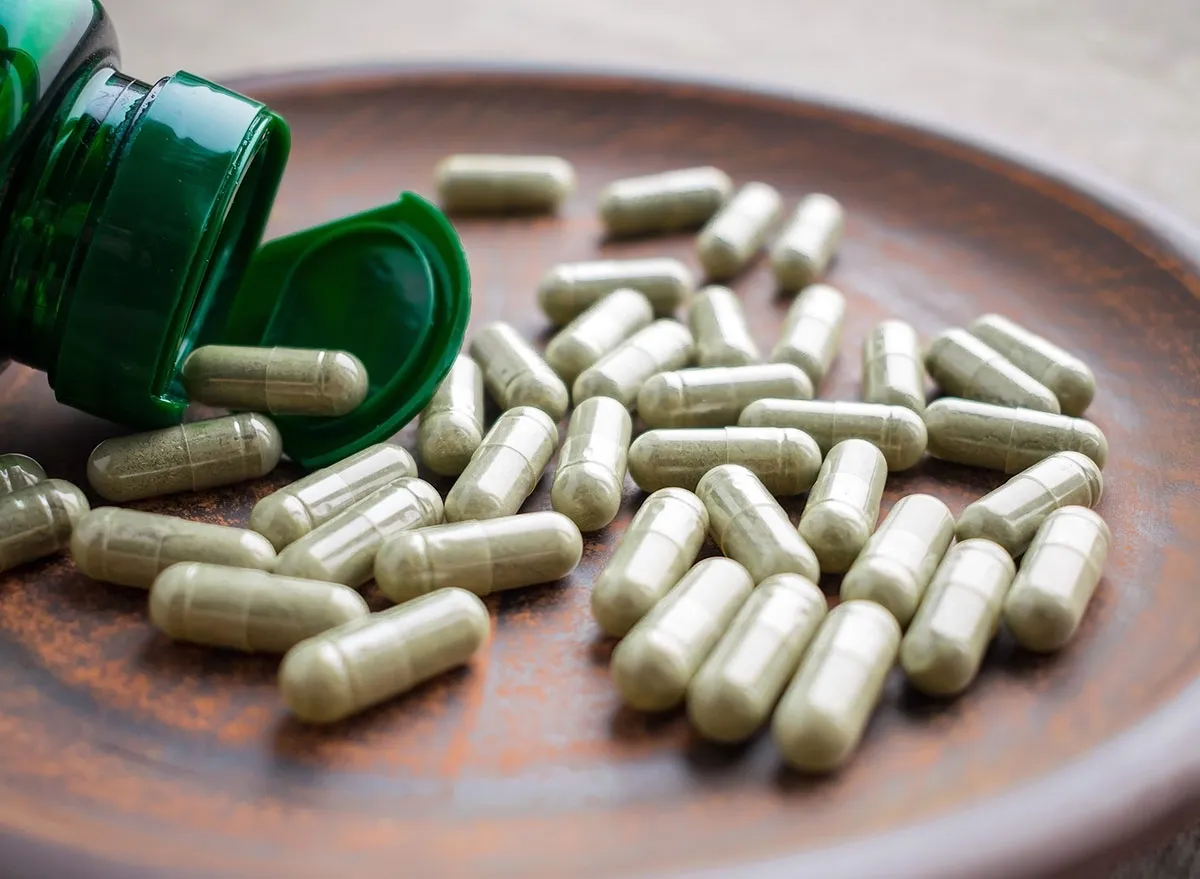
Another natural way to target LDL cholesterol is a cup of tea. Epidemiological studies have shown that drinking several cups of tea a day lowers LDL cholesterol. But you don't even have to steep to reap the benefits, you can pop a green tea supplement. In one double-blind placebo-controlled study, people with moderately high cholesterol who took a supplement containing extracts of certain teas, including green teas, for 12 weeks experienced a 16% reduction in their LDL "bad" cholesterol, says Lauren Manaker, MS, RDN, a nutritionist for Zhou Nutrition and member of the Eat This, Not That! Medical Expert Board. A meta-analysis of 31 trials totaling 3,321 people also points to the heart-health benefits of green tea. That study associated green tea drinking with significantly lower total cholesterol and LDL, but the practice showed no effect on HDL cholesterol. To learn more about how these benefits, read What Happens to Your Heart When You Drink Tea.
Read this next:
